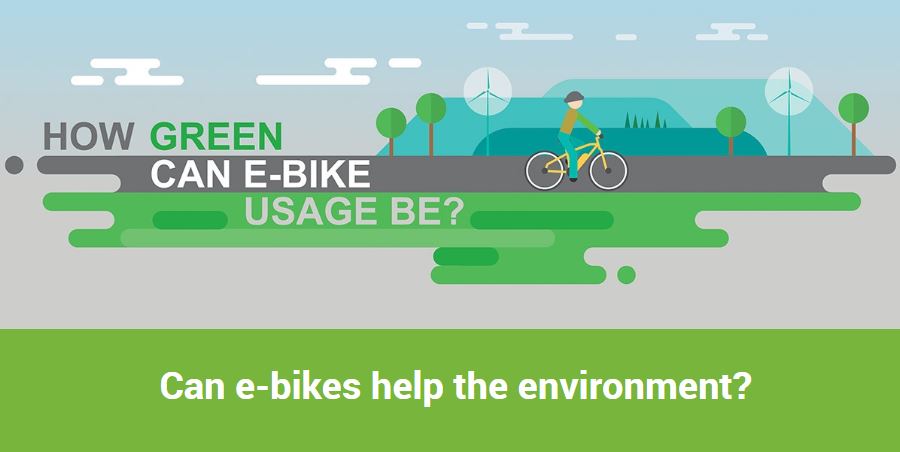Uncertain Whether To Choose An E-Bike Or A Conventional Bicycle? Check Out The Distinct Benefits And Aspects Of Each Alternative To Identify Which One Aligns With Your Needs

Written By-Hardison Bramsen
When choosing between an E-bike and a traditional bike, you might find yourself at a crossroads. The choice inevitably boils down to your specific requirements and preferences. E-bikes supply electric assistance for a smoother experience, especially on challenging terrains, making your commute much easier and extra enjoyable. However, traditional bikes provide a traditional exercise experience that some cyclists choose. As you weigh the advantages of each alternative, consider variables like efficiency, cost, and environmental influence to identify which one straightens best with your way of living and goals.
Performance Differences
When comparing e-bikes and standard bikes, among the key facets to think about is their efficiency differences. E-bikes, with their electrical help motors, provide cyclists an added increase when pedaling, making uphill climbs and long distances a lot more workable. This added power can help you reach higher rates with less effort, permitting a smoother and a lot more satisfying adventure generally.
On the other hand, standard bikes count exclusively on your physical strength to thrust them ahead. While this may provide an extra difficult exercise, it can additionally be tiring, especially on hard terrains or during long experiences.
In terms of rate, e-bikes generally have a higher maximum speed contrasted to conventional bikes. The electrical motor can assist you in reaching rates of approximately 28 mph, depending on the version and neighborhood policies. Typical bikes, on the other hand, typically have reduced maximum speeds, which are restricted by your physical capacities. This can make a difference, particularly for travelers or those wanting to cover longer ranges in a much shorter quantity of time. Ultimately, the efficiency differences in between e-bikes and typical bikes boil down to individual preference and the specific demands of the cyclist.
Expense Considerations
For those thinking about the purchase of a brand-new bike, cost factors to consider play a substantial role in the decision-making procedure. When comparing e-bikes and conventional bikes, it's vital to evaluate not only the upfront expense however also the long-term expenses. E-bikes generally feature a greater first price tag due to their electrical components, however they can possibly save you money over time by decreasing transport expenses and maintenance charges.
Typical bikes, on the other hand, often tend to be extra budget-friendly upfront and have lower upkeep prices, yet they might call for even more physical effort to ride, impacting your commuting expenditures and time.
When making click this link now between an e-bike and a standard bike, think about your budget plan and just how much you're willing to buy your brand-new experience. Consider variables like the expense of charging an e-bike versus buying fuel for a typical bike, as well as the costs related to repair services and substitutes with time. Inevitably, the best choice will certainly depend upon your economic circumstance and the worth you place on convenience and performance.
Environmental Influence
Considering the environmental influence of your selection between an e-bike and a typical bike is important in today's eco-conscious globe. Both e-bikes and conventional bikes have their ecological benefits and drawbacks.
E-bikes are powered by power, which can be produced from sustainable resources, making them a cleaner option contrasted to conventional bikes that rely on human energy. Nevertheless, the production and disposal of e-bike batteries can have negative ecological repercussions if not taken care of correctly.
On https://writeablog.net/cordelia63gretchen/an-introductory-overview-of-e-bike-regulations-and-guidelines-in-your-city , conventional bikes don't produce any type of discharges throughout usage and have minimal ecological effect in regards to production and disposal. By selecting a typical bike, you can lower your carbon impact and contribute to a much healthier world.
Inevitably, the selection in between an e-bike and a conventional bike boils down to your priorities and the degree of environmental impact you fit with. Make an informed decision that aligns with your worths and helps secure the setting for future generations.
Conclusion
So, when making a decision in between an e-bike and a standard bike, all of it boils down to what suits your requirements and preferences best. If you desire an easier adventure with much less physical effort, choose an e-bike. Yet if helmets for ebike enjoy an even more difficult exercise and do not mind putting in the initiative, stick to a traditional bike. Consider your priorities and way of life to make the best option for you.

